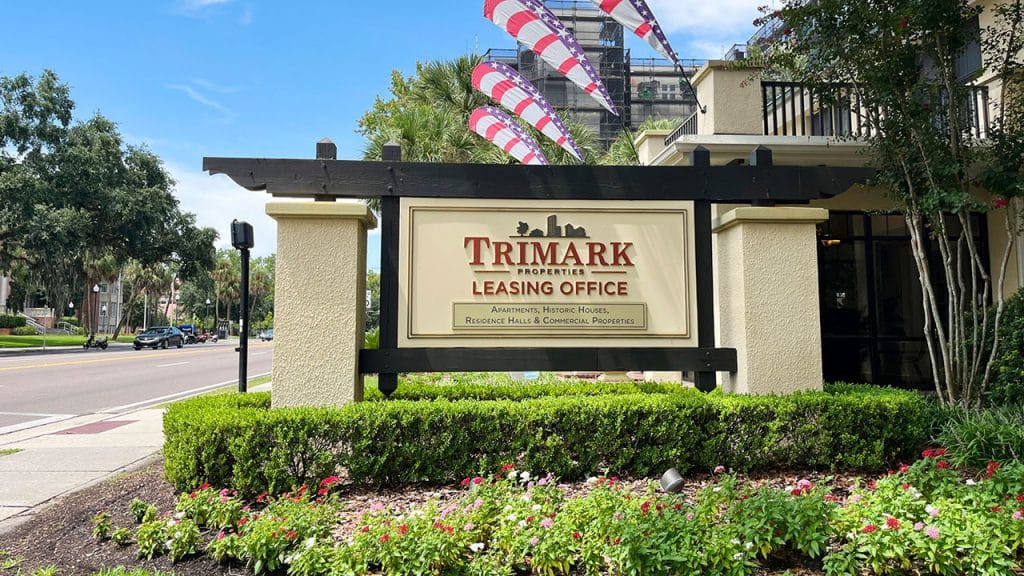
Data debate
Apartment sector navigates legal challenges to using algorithms to price rents
As legal scrutiny intensifies around algorithmic pricing in the rental housing market, many apartment owners are weighing what it means for their businesses — even if they’ve never used the software at the center of the controversy.
Over the past year, RealPage and its proprietary rent-setting algorithm have been the focus federal enforcement actions by the U.S. Department of Justice and the Federal Trade Commission, more than a dozen lawsuits and class actions, and a growing wave of state and local regulations aimed at limiting algorithm-driven pricing tools.
While most of the legal complaints focus on specific companies and users, legal scholars say the broader industry is now navigating a more cautious regulatory and reputational environment. “We’re only in about the top of the third in terms of figuring out where these cases will go,” said Ken Racowski, an antitrust attorney with the Tampa-based law firm Holland & Knight, drawing a baseball analogy to describe the early stage of litigation.
RealPage as well as its rival Yardi Systems, in separate cases, have been accused by regulators and plaintiffs of enabling property managers to raise rents through algorithmic systems that process shared, market-sensitive data — allegedly allowing landlords to engage in tacit coordination in violation of the Sherman Antitrust Act. The Federal Trade Commission has characterized the practice as “price-fixing by algorithm” and blamed such technology in part for pandemic-era rent spikes. Several cities including San Francisco, Philadelphia and Providence, R.I., have banned rent-pricing algorithms, and Colorado enacted the nation’s first statewide ban.
The hospitality industry has also been the subject of class-action lawsuits, which claim luxury and casino properties conspired to artificially inflate hotel room prices through use of algorithmic-based software. Judges dismissed two cases last fall, but legal experts say the broader concerns remain for the commercial real estate industry — over the boundaries of competitive pricing, algorithmic transparency and data-sharing in a regulated market.
Adding another layer to the complex data debate is a provision that was temporarily slipped into the federal budget reconciliation bill (dubbed the “One Big Beautiful Bill”) that would have blocked states and municipalities from banning or limiting artificial intelligence-based software, including rent-pricing tools. Despite intense lobbying by the National Multifamily Housing Council, the U.S. Senate voted July 1 to remove the AI moratorium in the wake of widespread criticism from state and local officials and consumer groups. The proposed ban may resurface in other legislation.
Legal landscape
RealPage’s software products — marketed under names such as YieldStar and Artificial Intelligence Revenue Management — are designed to simplify the complexity of pricing apartments for landlords, using a blend of market and competitors’ property-level data to recommend daily price changes for hundreds of units at a time. According to the Department of Justice’s amended complaint filed Jan. 7, RealPage’s algorithms provide recommended rents based on competitively sensitive data collected from competing landlords, including information covering listed and final rental prices for each unit, concessions and leasing applications by potential tenants. The plaintiffs, which also include attorney generals of 10 states plus the District of Columbia, claim RealPage clients accept the recommendations the majority of the time and this usually results in rent hikes, particularly in markets it dominates. RealPage has said it controls at least 80% of the market for revenue management software used by landlords in the conventional multifamily housing market, according to the suits. In its defense, RealPage says it merely makes “recommendations” for prices that are not binding and purely voluntary, and it says its software allows customers the ability to remove the use of nonpublic competitor data. The DOJ also named as defendants some of the largest U.S. apartment owners and managers, including: Greystar Real Estate Partners, Camden Property Trust, Blackstone-owned LivCor, Willow Bridge Co., and Cushman & Wakefield and its subsidiary Pinnacle Property Management Services. Another defendant, Cortland Management, while denying wrongdoing, has agreed to a proposed settlement that forbids it from using a revenue management product that relies on nonpublic information to recommend rents.
Wentong Zheng, a law professor at the University of Florida and a leading antitrust expert, says many stories about the alleged collusion by algorithm are oversimplified. “The facts really matter,” says Zheng, noting antitrust prosecution depends on nuanced details playing out in courts. “If the software is basing its recommendations purely on public data — what’s already posted on websites, for example — it’s much harder to say there’s collusion. But if the software aggregates nonpublic, confidential data from its clients — like upcoming rent increases, vacancy rates or concessions — and uses that to set individualized recommendations, the legal risks get much higher.”
Racowski says: “If operators are only using public data — from listings, websites or aggregated rent reports — the risk is much lower. But once you start sharing nonpublic, real-time leasing information, you’re opening the door to potential liability.”
Broader historical context
The use of sophisticated computer-based revenue management tools isn’t new to the business world. In the 1990s, the Justice Department pursued similar antitrust cases against major airlines and the Airline Tariff Publishing Co., which was owned by airlines and disseminated price change information to airline and travel agent computer systems. The settlements resulting from these cases established strict standards on how booking and fare data can be shared with competitors and led to millions of dollars in compensation for affected consumers.
“The cases against RealPage and others are a test of how those old antitrust principles apply in a new digital economy,” Racowski notes. “The industry is watching closely because the wrong outcome could affect not just apartments, but any sector where algorithmic pricing is becoming standard.”
Zheng draws a parallel to a classic legal case involving movie theaters that didn’t involve computers at all — but written letters. “There was a movie distributor who sent a letter to several theater chains, asking them to set a minimum price for tickets,” he says. “These theaters weren’t talking to each other at all — they were only talking with the distributor. But because each theater knew everyone else was getting the same instruction, the court found that there was a tacit agreement among them. They didn’t need to pick up the phone or meet in person to be considered in violation of the law.”
Zheng sees a clear analogy with today’s rent-setting software. “If a software platform tells multiple landlords that they should all be charging $2,000 for a one-bedroom in a particular neighborhood — and they all go along with it — it’s not so different from the distributor’s letter to the theaters. Even without direct communication, you can have collusion, facilitated by the software acting as a hub.”
The industry perspective
In the face of legal challenges, apartment owners and investors are trying to figure out how to run their businesses without running afoul of the law. We interviewed operators of five large multifamily housing companies to learn the methods they use to determine rents. These landlords own several hundred units to tens of thousand units. Of the five, two currently subscribe to RealPage. Camden CEO Ric Campo told us he could provide little beyond a brief press release because Camden is a party to ongoing legal cases. The company says it denies the allegations and “will vigorously defend itself.” The second RealPage customer we spoke with is the director of asset management for a company that owns roughly 4,000 units. He asked not to be named. He admitted his team has recently consulted with legal counsel to fine-tune its use of the software to reduce potential liability. The company now limits property managers from using an “auto accept” feature that allows landlords to instantly modify prices based on RealPage’s recommendations. He says he sees how the software could foster a kind of herd mentality that may prove legally problematic. “If a hundred landlords all rely on the same source, that’s probably going to lead to a lot of similar decisions. That’s something everyone in the industry needs to think about.” He even says he wishes the company would remove the auto-accept feature as it tends to make property managers lazy and the data feeding the algorithm is “opaque.” As is, he says RealPage’s product is just one instrument in his company’s kit. “It’s helpful in gauging the market, but we don’t just plug in their numbers and call it a day,” he says. “There’s still no substitute for local knowledge and hands-on management.”
Other apartment operators we spoke with echoed this approach, even if they don’t currently use RealPage’s system. Among them is Fort Lauderdale, Fla.-based Altman Living, which instead of subscribing to RealPage relies on “old-school and data-driven” methods to price units, says Tim Peterson, chief strategy officer of the developer of luxury apartment buildings. The company hires a third-party service to scrape competitors’ listings from websites. This data — readily available on public websites — lands in Altman spreadsheets, where it’s compared, apartment by apartment, against its own. “We layer that in with our proprietary knowledge,” Peterson says. “Is this building closer to the grocery store? Is the ceiling nine feet or 10? Does it have a dog park? Our pricing isn’t just about occupancy levels or some pure mathematical formula. It’s human judgment, every day.”
Nathan Collier, founder of Collier Cos., a Gainesville, Fla.-based apartment developer, experimented with using RealPage for a couple of years at a property in Orlando but discontinued its use, finding the cost — roughly $3 a door per month — likely wiped out any benefit. Instead, Collier’s company relies on on-site leasing teams and tailored strategies. “We mystery shop, we talk to competitors, we look at every factor our residents care about,” he says. “Software can support that, but if everybody has the same tool and follows it blindly, you lose the edge.” Collier even disputes the notion that an algorithm or even his property managers really set the rents. “We don’t set rents — the market sets rents. We are just trying to figure out what the market is.”
In student housing, the rental game has long been a fast-moving target, with high lease-up periods and hyper-local competitive dynamics. Yet algorithmic-based software programs are not in the toolbox of Phil Wagner, director of operations at Trimark Properties in Gainesville. He has spent nearly two decades understanding the nuances of the college town’s apartment terrain and building complex Excel spreadsheets, not using specialized software. “We obsess about not just price, but location, convenience, parking and neighborhood fit,” he says. “Are students trading down? Is traffic shifting from Class A to B properties? You can’t automate your way to those answers.”

Other sectors: Guidance not gospel
Operators in other commercial real estate sectors — including hospitality and even self-storage— rely on their own versions of software to manage tons of operating data, including vacancy levels and pricing of competitors’ units.
Samir Yajnik, managing partner at Blue Lotus Ventures, says his company uses a variety of tools to manage dynamic pricing required in the hotel room business. These include Smith Travel Research (STR), a CoStar Group-owned firm that provides performance data and analytics for hotels. “You get a number from STR or a revenue management program, but if you’re not cross-checking, you miss how much is being paid in commissions, or how big groups or weather are affecting business,” says Yajnik, whose company invests in and operates hospitality properties. “There’s a sense that, if you’re not careful, you’re really just turning your business over to a black box that doesn’t know your market like you do,” he explains. “Software is guidance, not gospel.”
Campo of Camden rejects the notion that the apartment sector operates like the airline or hotel business. “We’re housing people, not moving perishable seats,” he says. “People stay for years, not nights. The dynamics are different. If you treated your residents like airline passengers, you’d have vacancy problems fast.”
Finding a path forward
Amidst legal fights and concerns about affordability, Campo and others argue the narrative about pricing algorithms being responsible for higher rents misses a central point: They can actually make markets work better. For Altman’s Peterson, the scrutiny of RealPage and similar tools often fails to capture the complexity of building and managing apartments. “People think that if you break up pricing platforms, rents will suddenly fall, but it’s not that simple,” he says. “Investors rely on predictable, data-driven decisions to put their money into building apartments. The more chaotic and unpredictable the market feels, the less willing they are to invest. That’s when you really get housing shortages — and fewer choices for renters.”
As the legal battles play out, most agree that rules governing data sharing and pricing algorithms must evolve for the realities of the digital age — balancing consumer protection, competition and the need to attract new supply. Greater transparency around data inputs, pricing methodologies and operator practices may go further than lawsuits in fostering trust, Racowski says. “Guardrails are good. But one-size-fits-all rules, or panic-inspired regulations, can do as much harm as good,” he says.
As Zheng puts it, the true work of keeping markets honest “lies not in demonizing or lionizing technology, but in understanding and governing how it is used.”
Related stories
For the media
Looking for an expert or have an inquiry?
Submit your news
Contact us
Follow us on social
@ufwarrington | #BusinessGators


